WHEN the Economist awarded Bangladesh ‘Country of the Year 2024’ for “toppling a despot” and “taking strides towards a more liberal government,” it gave me further impetus to visit the country my parents hailed from (albeit before its independence).
So when a delegation of UK business investors looking to expand into Bangladesh invited me along to join them over parliamentary recess, I jumped at the chance, making me the first of the four British Bangladeshi MPs to venture to what is now termed “Bangladesh 2.0”.
Getting my visa at the Bangladeshi High Commission in London felt different to my last trip in May 2024 for a UN Population conference, which was only my sixth time ever in the country since I was born in London in 1972.
Gone are the omnipresent statues and pictures erected in Dhaka by the last regime. Instead, I encountered a much more constructive attitude towards me compared to the suspicion shown by the previous High Commissioner in London.
Strikingly colourful murals documenting last summer’s revolution festoon the whole of Dhaka, where cartoons were previously banned. Much is familiar though – the traffic jams, heat and dust. Everything has changed and yet nothing has changed.
The packed programme organised by the delegation hosts, the UKBCCI (UK Bangladesh Catalysts of Commerce and Industry), was filled with meetings at various government ministries. On the agenda were foreign affairs, diaspora matters, commerce and fisheries, plus dinners in international hotels to the point that one delegate moaned, “there’s no sightseeing programmed”.
Our group included businessmen primarily from the British Bangladeshi diaspora of Birmingham, Manchester, and Uxbridge, along with two Hindus and a female Chinese tycoon based in London.
I made a point of speaking to students wherever I could; sometimes departing from the programme and sneaking off.
In the evenings, I tried to meet cousins I end up seeing probably once every 10 years, on average. Aunts and uncles have mostly died, my parents too departed in 2014 and 2017, respectively.
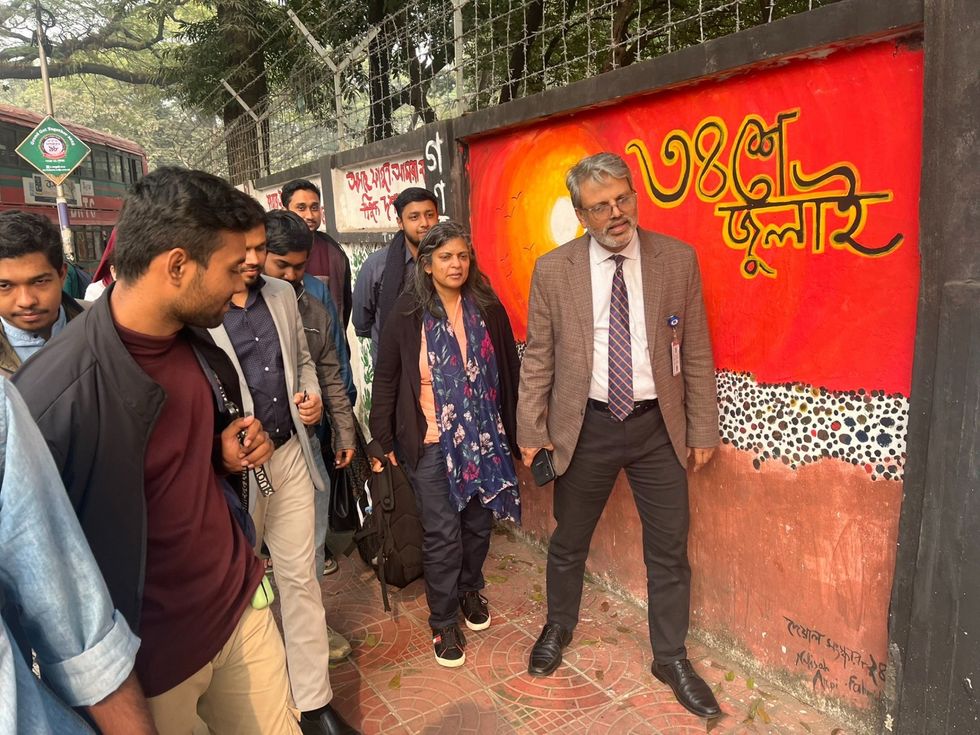
One person I met was Christian. “You’re an oppressed minority?” I asked. “Don’t call me that; I’m a Bangladeshi citizen,” he replied, annoyed at the suggestion.
I was also shown around the quasipermanent exhibition of graffiti surrounding Dhaka University walls.
Later, I sat down with students at Jagannath Hall – a residence for minority students dating from the 1920s when contamination of food was a worry.
The Hindus in our impromptu campus focus group attested that minority discrimination has occurred, and Amnesty and Human Rights Watch have continually pulled up Bangladesh for this and for corruption, too.
Recent incidents are mostly linked to political affiliation. Such is the anger at the overthrown Awami League party that its members of all faiths have been targeted by mobs; they also attacked former prime minister Sheikh Hasina’s palace and the shrine to her father; Sheikh Mujibur Rahman, the country’s first ruler. This ire extends to people in public sector roles as so many posts were provided on party lines, even teachers and doctors. Unjust “jobs for the boys” was the cause of the original summer unrest last year.
Attacks on senior Awami League leaders peaked in the immediate aftermath of the August ouster of Hasina.
Our delegation met all the influential people, right up to head of state. At the start of August 2024, professor Mohammad Yunus was a Nobel Prize winning economist, facing a lengthy prison sentence on spurious grounds alleged by the past Hasina government, while visiting Paris for the Olympics.
At the end of that month, he became acting prime minister (or “chief advisor”) at the request of students behind the “monsoon revolution” of August 5.
He is a reassuring consensual figure who commands worldwide respect for lifting women out of poverty and has even been a Simpsons cartoon character (when Lisa wanted to avail herself of one of his pioneering microfinance loans).
Among those who came to his defence during his persecution were the Obamas and Clintons, friends he made having taught in the US for a chunk of his career, so it is wrong he is being labelled as an Islamist by desperate supporters of the old order.
With the help of the BBC director general’s good offices, I found BBC Bangla, part of the World Service and went round. They described working under the extreme adversity of the last government who detested scrutiny and included critical journalists under the forcibly disappeared and extra judicially killed.
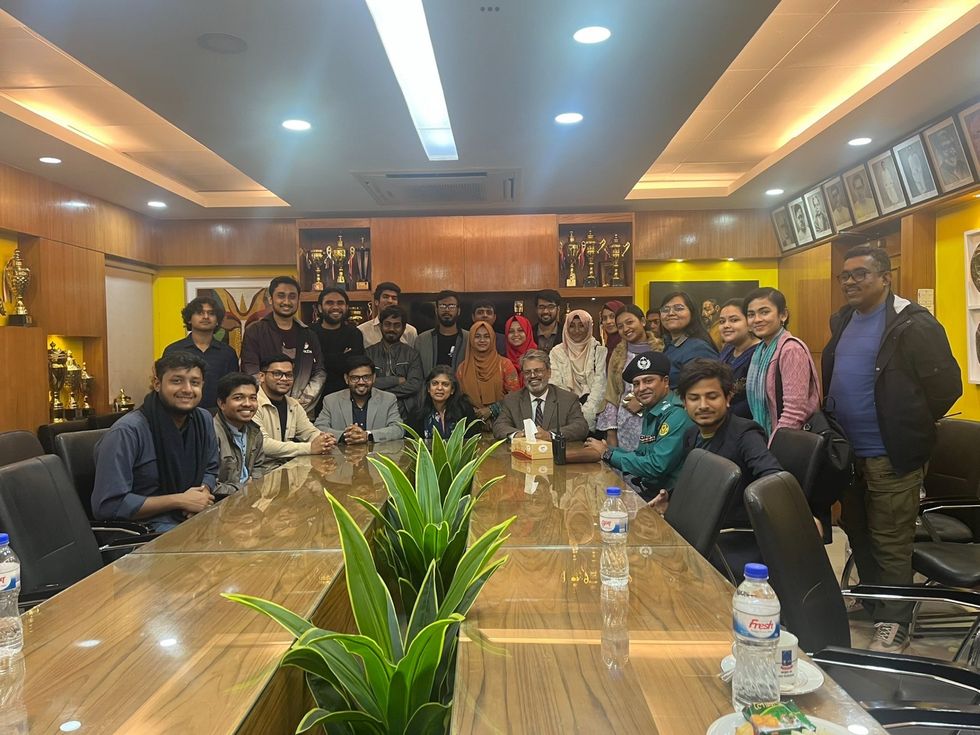
BBC Bangla continued broadcasting even when government forces shut down the internet last summer and imposed a curfew, bypassing restrictions with VPNs.
Our meeting with Yunus featured on national bulletins and made the front pages of newspapers.
My BBC interview too led to appearances on numerous national networks: R channel, Channel I, Channel 71 and Jumuna tv, among others.
As the visit progressed, I was recognised more and my rusty English-accented Bengali became more fluent with the many selfie requests.
At Atish Dipankar University Trust in Uttarah, I was mobbed like a rockstar. The talk I gave there began with an overly long introduction praising me for changing the course of history. I had to correct the students – it was they who had brought about change, not me.
I also learned about the business world, which was why I was there after all. Garments comprise 84 per cent of Bangladeshi exports, but things are diversifying and allowing for climate vulnerability.
Outside Dhaka, we saw the Japanesefunded special investment zone with hitech firms, surrounded by a trench and set eight metres above ground to equip it to be flood-proof.
One member of our delegation imports prawns, but was worried China is hoovering up the market because of red tape. Brexit is something my constituents hate, but Bangladesh sees it as opportunity.
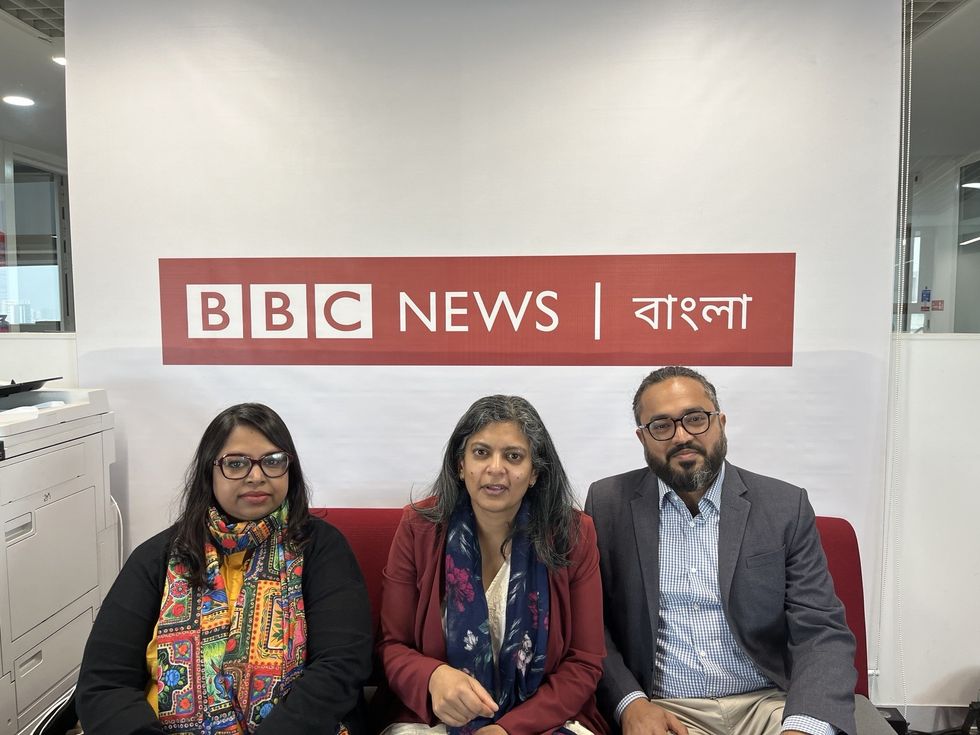
Above all, I witnessed relative calm – unlike the FCDO travel advice and the picture painted by some media outlets and which are read in the UK.
Police are maintaining law and order and unlike my 2017 visit with the Labour Friends of Bangladesh with other MPs, I had no police escort, so moved around freely, including on foot and by rickshaw when I could. I even rode the new Metrorail reportedly created by China with an inflated international loan concealing looted funds as so many infrastructure projects allegedly were.
Amid this, the seeds of democracy are being sown, with Yunus’ various commissions. A timeline for elections – hopefully by the first half of next year – is being set, but there is work to do to cleanse institutions of apparatchiks. Two Bangladeshi parties alternated in power until the Awami League changed the constitution, securing three consecutive terms and becoming increasingly authoritarian. To rush into elections would mean the other (BNP – Bangladesh National Party), whose past governments are similarly criticised, will simply win. To have one corrupt lot replace the others gains nothing.
My visit taught me much about international trade, society and politics, but surely a new way forward from the old stale duopoly is needed so that the lives of 800 (possibly more) dead students were not in vain.
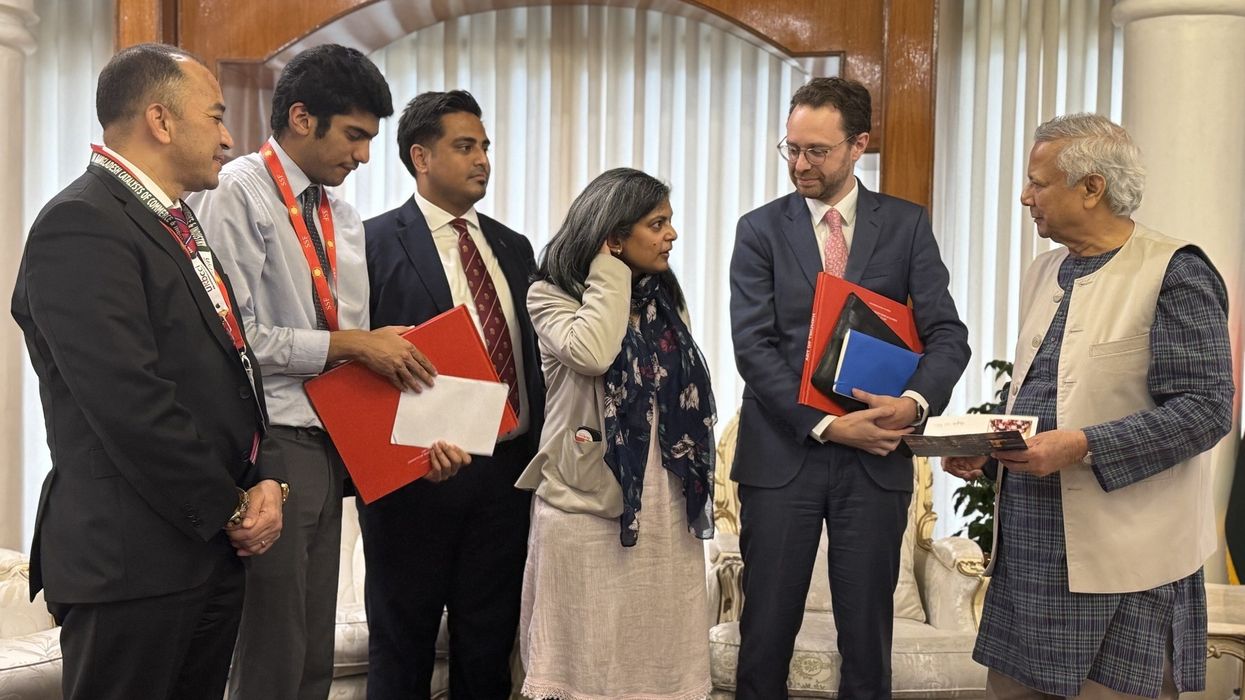


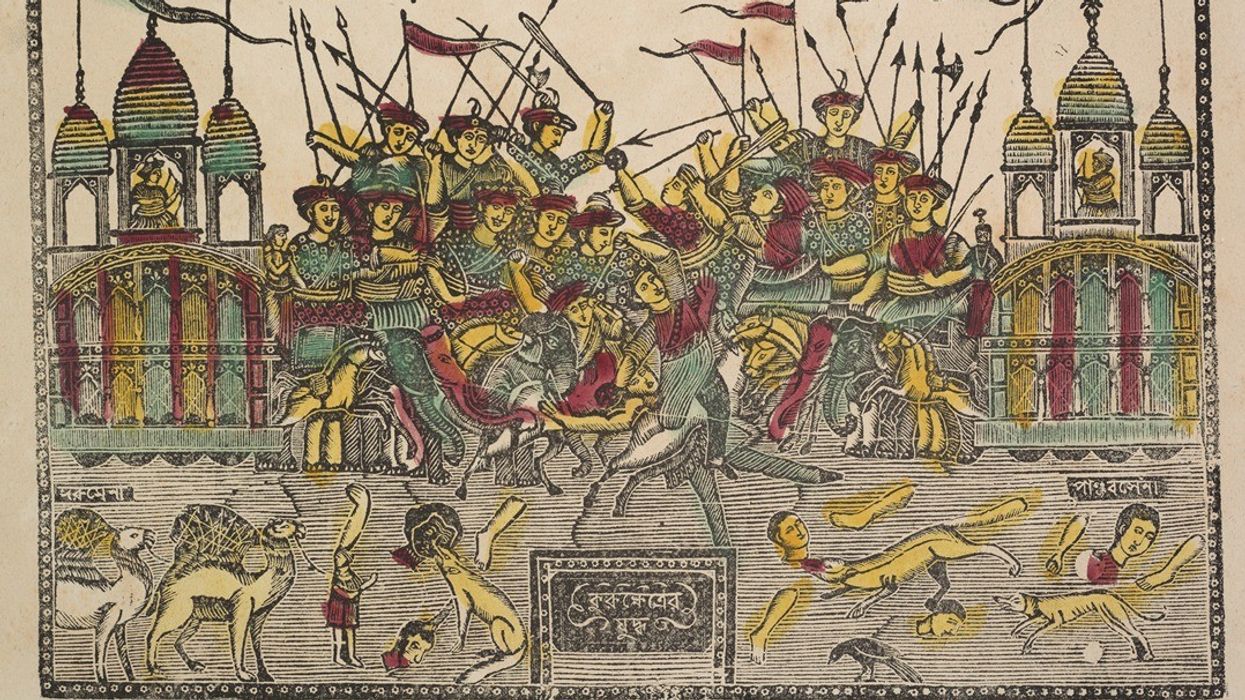
Anurag Bajpayee's Gradiant: The water company tackling a global crisis